Graduation 2014!
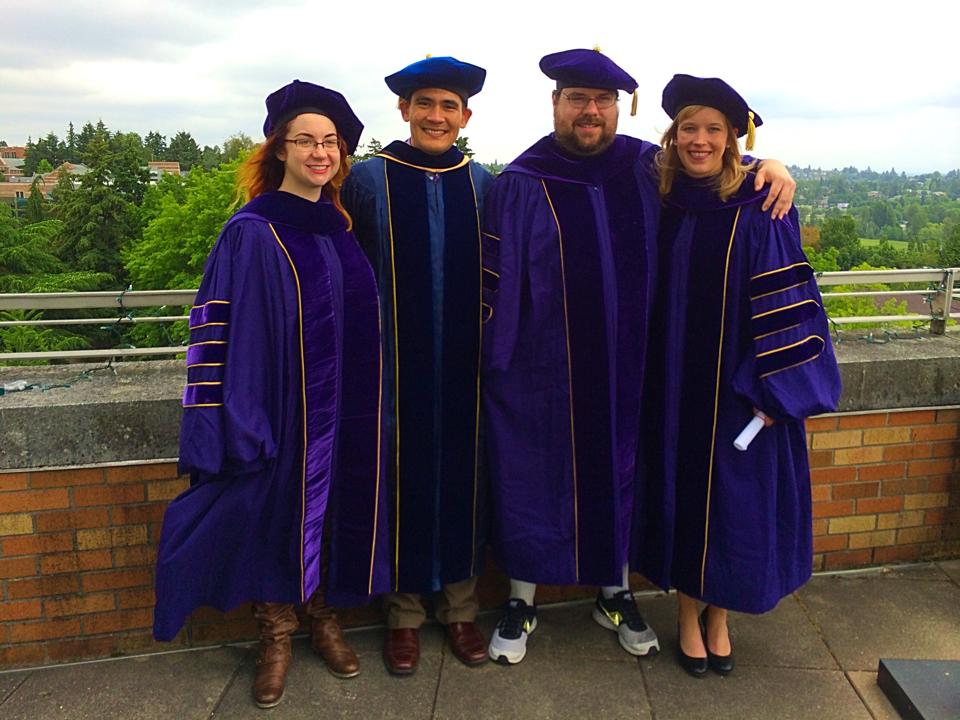 Congratulations to Franzi, Karl, and Tammy for walking today as part of your PhD graduations! We are very proud of all the UW CSE graduates!
Congratulations to Franzi, Karl, and Tammy for walking today as part of your PhD graduations! We are very proud of all the UW CSE graduates!
Security and Privacy Research Lab
Paul G. Allen School of Computer Science & Engineering, University of Washington
 Congratulations to Franzi, Karl, and Tammy for walking today as part of your PhD graduations! We are very proud of all the UW CSE graduates!
Congratulations to Franzi, Karl, and Tammy for walking today as part of your PhD graduations! We are very proud of all the UW CSE graduates!
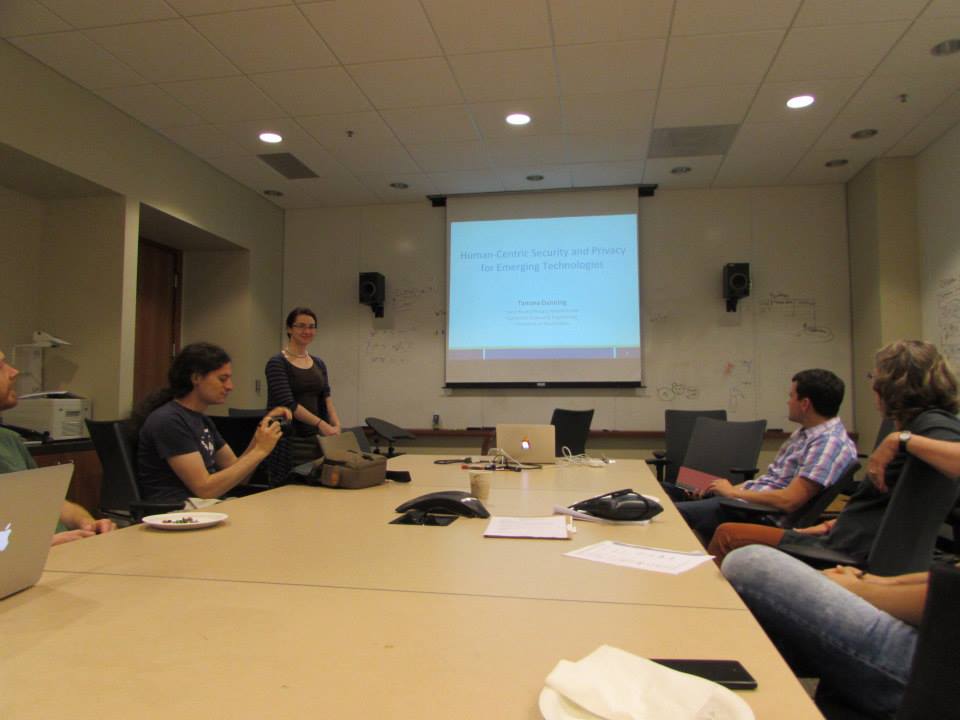 Congratulations Prof. Dr. Tamara Denning for a very successful final defense!
Congratulations Prof. Dr. Tamara Denning for a very successful final defense!
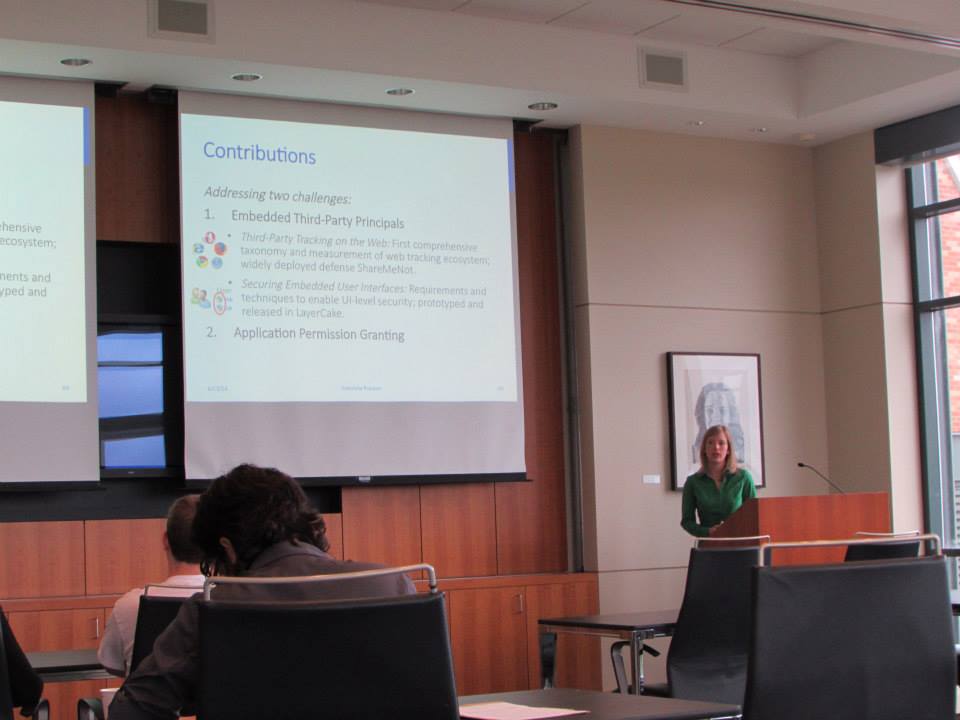 Congratulations Prof. Dr. Franzi Roesner for a very successful final defense!
Congratulations Prof. Dr. Franzi Roesner for a very successful final defense!
 Congratulations to Dr. Miro Enev for a very successful final defense!
Congratulations to Dr. Miro Enev for a very successful final defense!
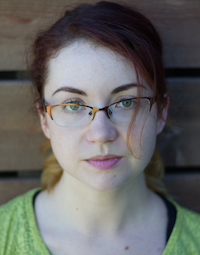 Congratulations to Prof. Tamara Denning! Prof. Denning will be joining the University of Utah’s School of Computing as a tenure-track Assistant Professor. Congratulations to the University of Utah too, which is very fortunate to be getting Prof. Denning! Prof. Denning has done some amazing and visionary work in the field of computer security and human-computer interaction. She is scheduled to receive her PhD from the University of Washington in June.
Congratulations to Prof. Tamara Denning! Prof. Denning will be joining the University of Utah’s School of Computing as a tenure-track Assistant Professor. Congratulations to the University of Utah too, which is very fortunate to be getting Prof. Denning! Prof. Denning has done some amazing and visionary work in the field of computer security and human-computer interaction. She is scheduled to receive her PhD from the University of Washington in June.
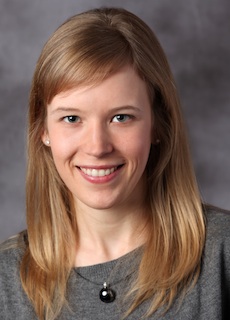 We are very excited to say that Franzi Roesner has accepted a tenure-track faculty position within the University of Washington Computer Science and Engineering Department! UW was very fortunate to get Prof. Roesner, as she had numerous other very attractive offers. Prof. Roesner will bring huge strengths and a new, permanent perspective to the UW CSE computer security and privacy efforts. We are all very excited about this! And congratulations to Prof. Roesner too!
We are very excited to say that Franzi Roesner has accepted a tenure-track faculty position within the University of Washington Computer Science and Engineering Department! UW was very fortunate to get Prof. Roesner, as she had numerous other very attractive offers. Prof. Roesner will bring huge strengths and a new, permanent perspective to the UW CSE computer security and privacy efforts. We are all very excited about this! And congratulations to Prof. Roesner too!
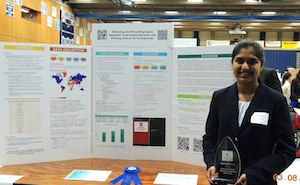 Alisha Saxena, a senior from Interlake High School, was named the First Runner-Up in the 2014 Central Sound Regional Science & Engineering Fair. Alisha’s project, “Analyzing and Preventing Quick Response Code Based Malware and Phishing Attacks for Smartphones,” was conducted in UW CSE’s Security and Privacy Research Laboratory, where she has been mentored by Ph.D. student Franzi Roesner and professor Yoshi Kohno.
Alisha Saxena, a senior from Interlake High School, was named the First Runner-Up in the 2014 Central Sound Regional Science & Engineering Fair. Alisha’s project, “Analyzing and Preventing Quick Response Code Based Malware and Phishing Attacks for Smartphones,” was conducted in UW CSE’s Security and Privacy Research Laboratory, where she has been mentored by Ph.D. student Franzi Roesner and professor Yoshi Kohno.
In addition to being named First Runner-Up, Alisha also won first place in the Computer Science category and the Intel Excellence in Computer Science award. We reported in December on Alisha’s recognition as a Winner in the 2014 National NCWIT Award for Aspirations in Computing.
Alisha and the Grand Champion – Meera Srinivasan, a junior at Interlake High School – will receive an all-expense-paid trip to represent the Central Puget Sound region at the 2014 Intel International Science & Engineering Fair in Los Angeles this May.
Congratulations, Alisha!
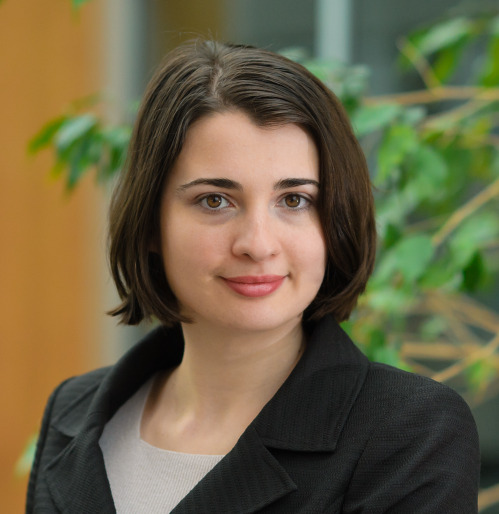 Congratulations to Columbia University professor (and UW CSE PhD alum) Roxana Geambasu for winning the prestigious U.S. National Science Foundation CAREER Award! To quote the NSF web page, the CAREER award is “the National Science Foundation’s most prestigious awards in support of junior faculty who exemplify the role of teacher-scholars through outstanding research, excellent education and the integration of education and research within the context of the mission of their organizations. Such activities should build a firm foundation for a lifetime of leadership in integrating education and research.” Congratulations Roxana!
Congratulations to Columbia University professor (and UW CSE PhD alum) Roxana Geambasu for winning the prestigious U.S. National Science Foundation CAREER Award! To quote the NSF web page, the CAREER award is “the National Science Foundation’s most prestigious awards in support of junior faculty who exemplify the role of teacher-scholars through outstanding research, excellent education and the integration of education and research within the context of the mission of their organizations. Such activities should build a firm foundation for a lifetime of leadership in integrating education and research.” Congratulations Roxana!
UW CSE PhD student Franzi Roesner gave a great talk today at Financial Crypto 2014. The talk focused on her work analyzing the usage of Snapchat. (More info in her paper, http://www.franziroesner.com/pdf/snapchat-FC2014.pdf.)
As a lab, we are very excited about the FTC’s Internet of Things workshop, which is going on today. The focus of the workshop is on security and privacy, and the four panels are on: the smart home, connected health and fitness, connected cars, and privacy and security — topics that we have been working on at UW for years now.
In his opening remarks, Keith Marzullo from the NSF included a slide on exemplar security and privacy projects for cyber-physical systems. The slide listed five example projects, three of which come from the UW CSE Security and Privacy Research Lab. Keith discussed UW’s work on analyzing the security and privacy properties of wireless implantable medical devices and, in particular, he cited our Oakland 2008 paper (in collaboration with UMass and BIDMC). He then went on to cite our experimental security analyses of a modern car, which appeared at Oakland 2010 and USENIX Security 2011 (in collaboration with UCSD). And, finally, he discussed the lab’s collaborative work with Howard Jay Chizeck (UW EE department) on secure telerobotics.